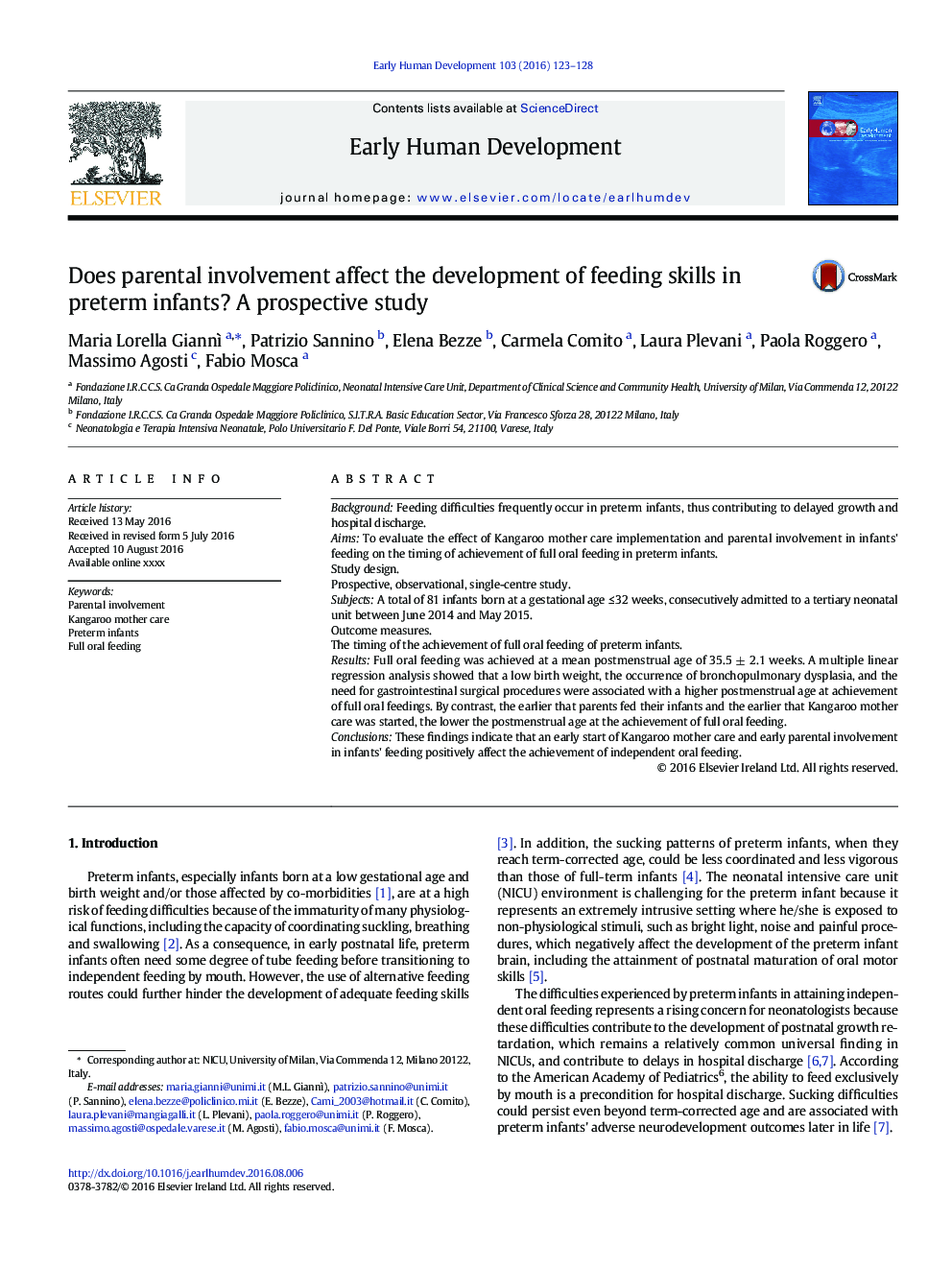| Article ID | Journal | Published Year | Pages | File Type |
|---|---|---|---|---|
| 3916381 | Early Human Development | 2016 | 6 Pages |
•Preterm infants frequently experience feeding difficulties, thus contributing to delayed growth and hospital discharge.•Occurrence of morbidities and being born with a low birth weight negatively affects the development of feeding skills.•Early start of KMC and parental involvement in infants’ feeding positively affect the development of feeding skills.•The findings from this study should encourage health care professionals to promote mother-father-infant relationships.
BackgroundFeeding difficulties frequently occur in preterm infants, thus contributing to delayed growth and hospital discharge.AimsTo evaluate the effect of Kangaroo mother care implementation and parental involvement in infants' feeding on the timing of achievement of full oral feeding in preterm infants.Study design.Prospective, observational, single-centre study.SubjectsA total of 81 infants born at a gestational age ≤ 32 weeks, consecutively admitted to a tertiary neonatal unit between June 2014 and May 2015.Outcome measures.The timing of the achievement of full oral feeding of preterm infants.ResultsFull oral feeding was achieved at a mean postmenstrual age of 35.5 ± 2.1 weeks. A multiple linear regression analysis showed that a low birth weight, the occurrence of bronchopulmonary dysplasia, and the need for gastrointestinal surgical procedures were associated with a higher postmenstrual age at achievement of full oral feedings. By contrast, the earlier that parents fed their infants and the earlier that Kangaroo mother care was started, the lower the postmenstrual age at the achievement of full oral feeding.ConclusionsThese findings indicate that an early start of Kangaroo mother care and early parental involvement in infants' feeding positively affect the achievement of independent oral feeding.
